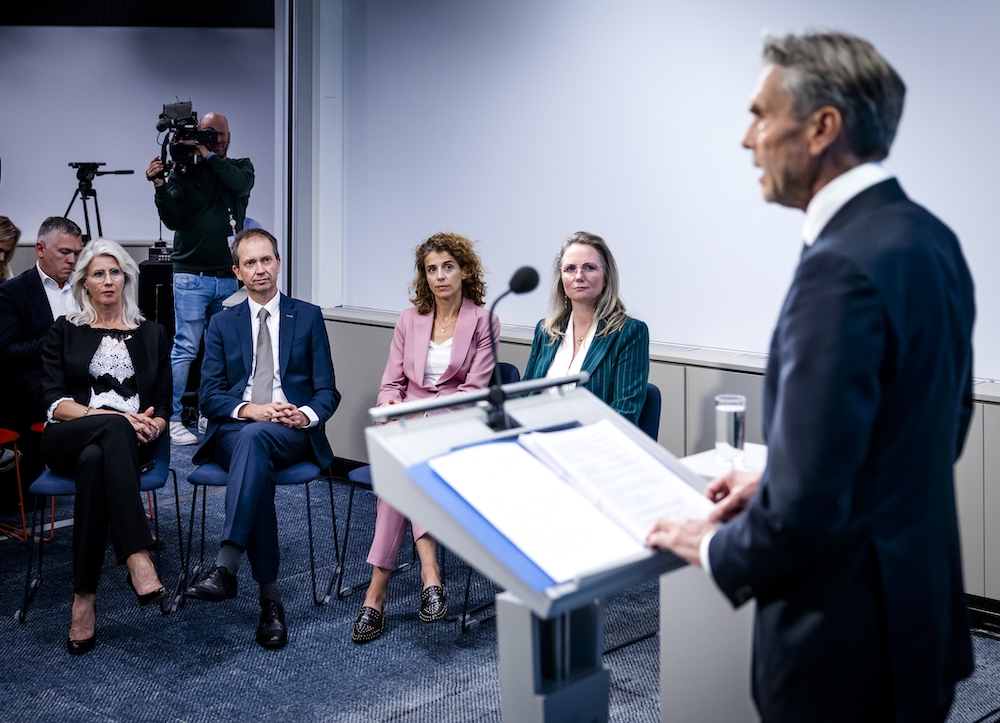Few surprises and little detail in right-wing government’s plans

The right-wing Dutch government published more details about its plans for the next three years on Friday, with an emphasis on cutting the number of asylum seekers but little else new of note.
The document, running to 137 pages, is an expansion of the strategy plan published in May this year, before the ministers had been appointed. Since the cabinet was sworn in in June, ministers have been fleshing out the initial proposals with more detail about how they would work in practice.
“We have to get a move on,” prime minister Dick Schoof said. “We cannot wait any longer. Not everything we tackle today will be solved tomorrow.”
The cabinet, he said, has limited financial resources. “We can’t do everything,” he said. “Healthy government finances are crucial for prosperity and this means we need to make choices. We are doing this for future generations, for our children and grandchildren.”
The most concrete proposals centre on asylum, with the government planning to call a crisis in the near future, which would enable it to bypass parliament and implement a number of measures that ministers hope will reduce the number of new arrivals.
These include making it more difficult to bring in new family members, scrapping legislation requiring all local authority areas to take their fair share of asylum seekers, and making accommodation more “basic”.
Schoof admitted that there still needs to be a discussion about the basis for declaring the refugee crisis to be an “emergency”. “We’ll deal with the motivation later,” he said.
Some controversial measures that had been planned have been reduced in scope or dropped altogether, such as cutting spending on young university researchers with the loss of 1,200 jobs.
The plan to increase value added tax on books will go ahead, but schools will get some form of compensation to make up the difference. The rest of the tax increase on theatres, museums, sports and concerts remains unchanged, as does the package of cuts facing primary and secondary education.
Rob Jetten, leader of the Liberal democratic party D66, said it was ironic that Schoof said in his introduction that the government was taking these steps for “our children and grandchildren”. “This is the biggest cut in education spending in years,” he told broadcaster NOS.
Thank you for donating to DutchNewsToday.
We could not provide the Dutch News Today service, and keep it free of charge, without the generous support of our readers. Your donations allow us to report on issues you tell us matter, and provide you with a summary of the most important Dutch News Today each day.
Make a donation